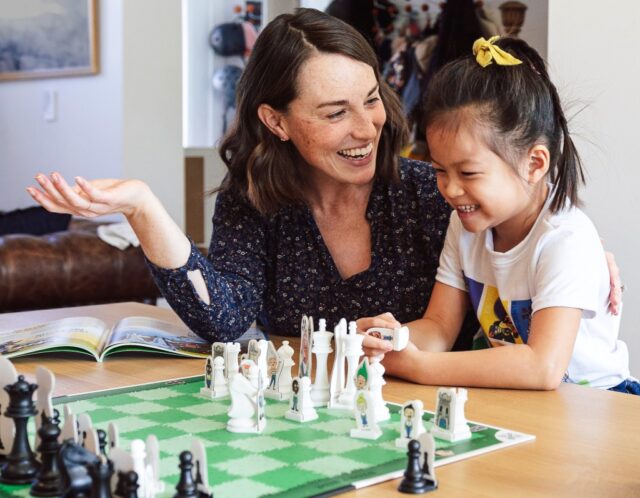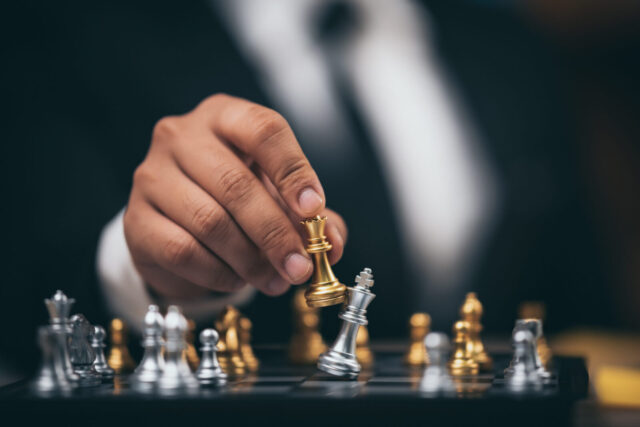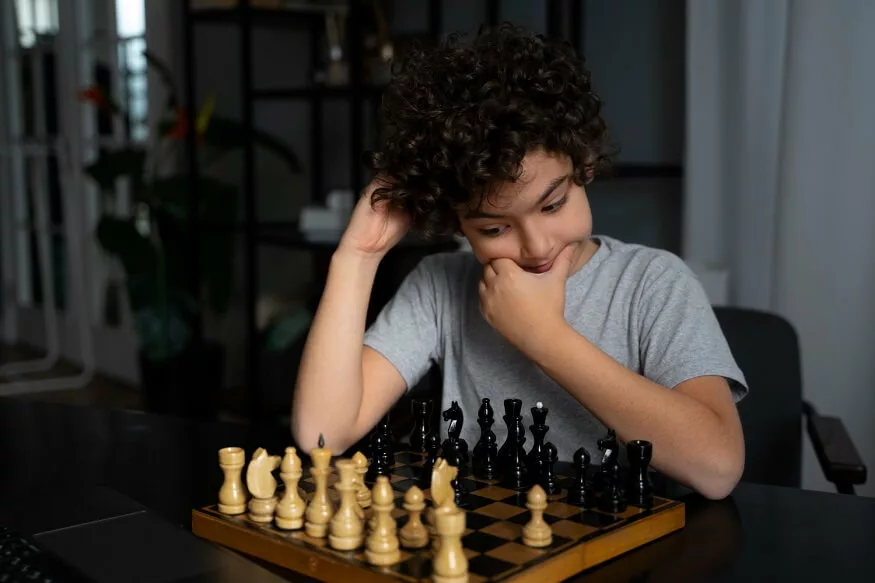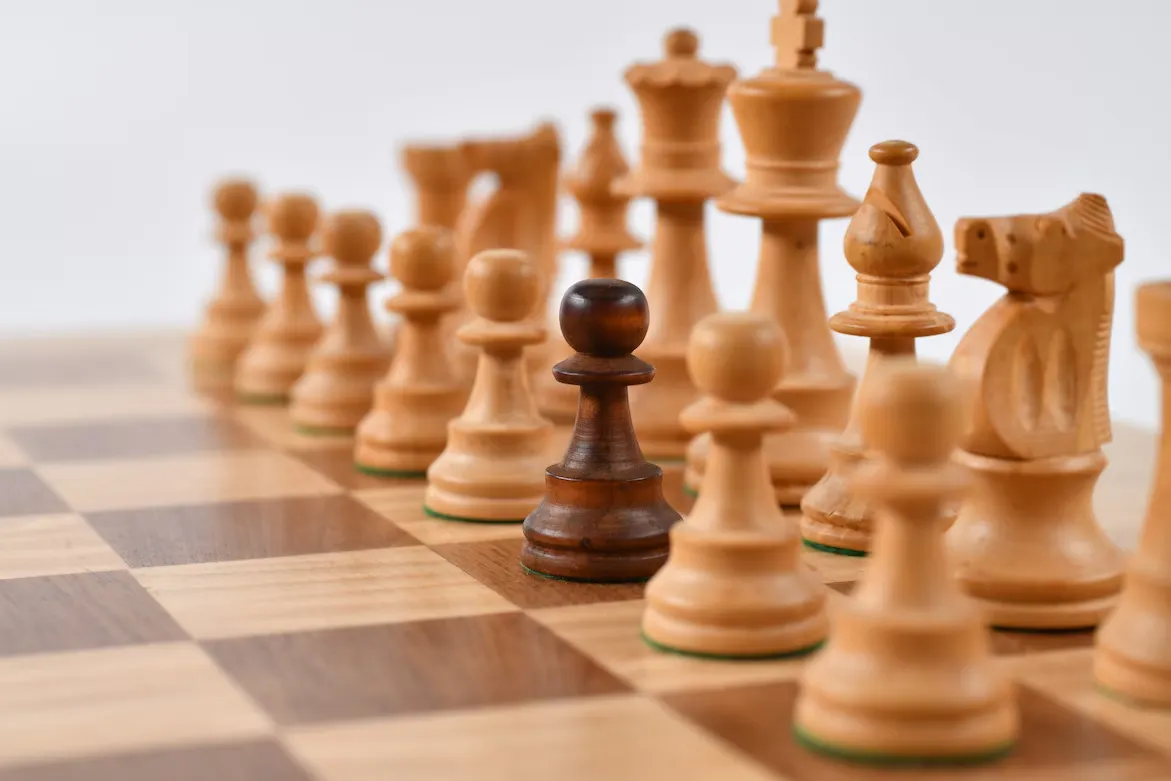
The three main components of chess are strategy, skill, and stamina. Stamina is the capacity to think clearly under duress. It is widely accepted that this is a mind sport that may be played competitively or even just as a hobby. However, training is crucial if you want to advance as a player and sharpen your chess abilities. Some tactics to improve your chess skills are provided in this article.
Chess puzzles are an excellent method of improving your mental agility and pattern recognition. The tricky part of chess is when players are using patterns to attack each other. Additionally, they help you develop your intuition and judgment, which is extremely useful when you have to predict your opponent’s next move. There are several online resources available that provide programs and websites with a wide range of puzzles for gamers of all ability levels. Some people on the internet started to enjoy this as a hobby, while many others desire to compete with the pros to see how much they have improved as players.
Things You can Do To Be Better Or Learn Chess
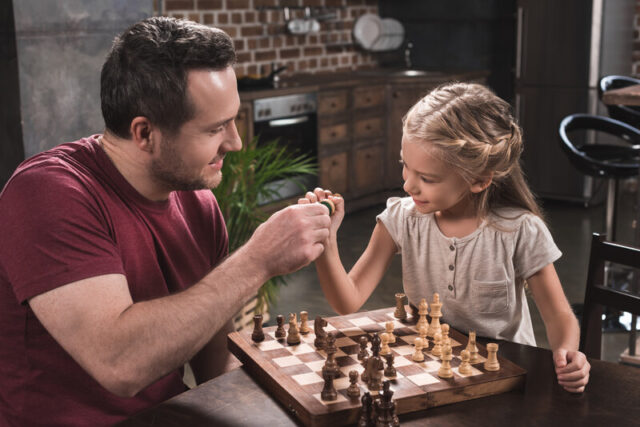
When you’re playing or even just living on earth, there will always be a series of learning habits and patterns that you should instill in yourself. Not just that, you should also consider your mental health because this is a game that will pressure every pulp of your brain as you go head to head with your opponent in a 1 vs. 1 situation and everything is really quite when you’re in the zone. This is why chess training can be difficult, and it’s simple to make blunders that could prevent you from improving. When learning the game of chess, keep an eye out for the following traps:
- Chess endgames are essential, and practicing with endgame scenarios will help you better comprehend the fundamental ideas and tactics. At this point, everything is vital, and every action you take has benefits and drawbacks of its own. It’s necessary to begin with simpler endgame puzzles and progress to increasingly challenging ones. Your overall comprehension of the game will increase after studying some elementary endgame theory.
- Reviewing your games is one of the finest ways to identify your strengths and weaknesses as a player and make the required corrections. This is a useful technique since there are times when you continually make mistakes that you don’t notice until you watch the full game again. Extra sheets are supplied in any event, and if the match is played online, recording opportunities are available. If you take the time to consider what you might have done differently after a game, you will come to the realization that you should always learn from your mistakes. Think about the mistakes you made and the ways you could have played the game better. This self-reflection will probably improve your decision-making skills.
Source: pittsburghparent.com - This is typical in the game of chess because there are friendly communities that welcome challenges and let you test your knowledge. Sometimes they even teach you what went wrong, but other times certain pros demoralize you by making the struggle seem so simple that you aren’t even aware that you are fighting. There will always be difficulties we must overcome and lessons to be learned.
- Studying opening strategies could provide you an advantage over your opponents because the opening is an important aspect of the game. Occasionally, the opposition may attempt to establish the tone right away, but you are aware of their tactics and know what to do in response. Acquire knowledge of several openers and make an effort to comprehend the concepts and tenets that support them. This could help you build your opening repertoire and get ready for various game styles.
- Playing against a variety of opponents with varying playing philosophies will help you become a better player overall. Every card game and board game, or even soccer games, have these complicated plays and always expect that you will play with others. These types of games needs a variety of opponents; if you know exactly what your opponent will do and how they will behave, you won’t get better. To push yourself and advance your abilities, seek out opponents that are both weaker and stronger than you. This will enable you to create a game that is more intricate.
Source: mugafi.com - It can be challenging to focus on your training and track your improvement without specific goals. After you’ve established specific goals and objectives, make a plan to move closer to achieving them. This is among the most crucial exercises you should perform because these kinds of goals are what will motivate you to keep going.
- Openings are crucial, but concentrating too much on them can be harmful. Never lose confidence in any aspect of the game; you won’t always win by waiting for your opponent to freeze after you come up with a brilliant opening move. Understanding the game inside and out is crucial, as is practicing positional play, endgames, tactics, and strategy. You should also be aware of your own limitations and work to gradually transcend them.
- Theoretical chess research has its uses, but it is best utilized in conjunction with practical play. Similar to cooking, first-hand experience is more significant than reading all day; it doesn’t imply you have to know every measurement. Play games and evaluate your own and other people’s games if you wish to improve your comprehension of the game. Since you may already apply what you’ve learned while playing, this will demonstrate the need of experiencing things first in order to completely understand what you’ve been learning.

Source: chesstraining.app - Focusing on your advantages could be tempting, but it could also be a big mistake. You will feel secure and pleased of yourself despite the fact that you still lack something because of this. There’s always going to be something better. Always keep in mind that recognizing and improving your weaknesses is essential to being a great player.
- If all you play against are amateur opponents or stick to tried-and-true strategies, you might not be able to advance as a player. It’s crucial to challenge oneself by taking on more seasoned opponents and trying out novel strategies. Chess education is an excellent means of resolving this problem.
- It’s critical to relax and take pauses because failing to do so might lead to burnout. Poor performance and lack of focus might result from overtraining. Acquire the ability to multitask or unwind and enjoy leisure time. Taking a pause might sometimes help you see things more clearly. Therefore, don’t feel bad about taking a break when you need one because it’s always necessary for anything you accomplish.
Source: euroschoolindia.com - Despite being a mental game, playing chess can benefit from physical health. It’s not good when players get so dependent on the game that they refuse to sleep. Long-term game attention can be maintained and cognitive function enhanced with a nutritious diet and regular exercise. Additionally, healthy circulation will allow your brain to function much more effectively. You will be in a healthy state and won’t have to worry about specific ailments because you have taken responsibility for your own health. As a result, you can perform with ease.

